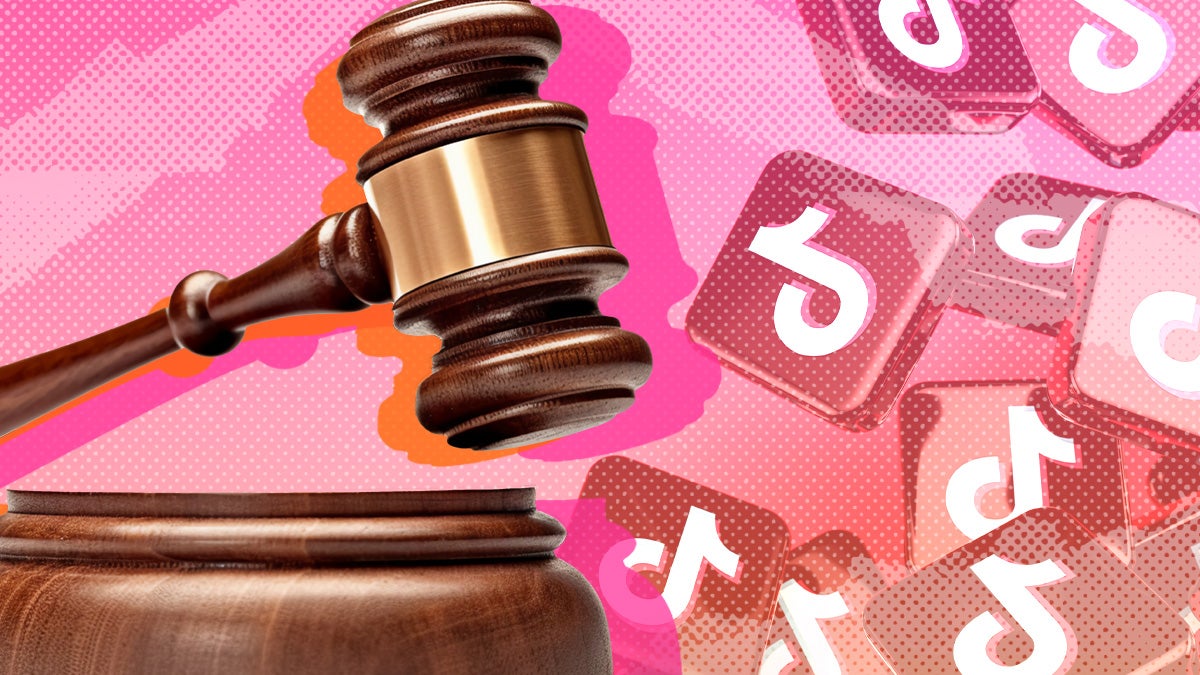
Today, the US Court of Appeals for the DC Circuit is hearing TikTok’s case against legislation that could ban the app in the US.
It’s the first step in a court battle that will likely go to the Supreme Court. If TikTok doesn’t divest its assets from Chinese parent company ByteDance by Jan. 19, lawmakers will ban the app in the US.
In court today at 9:30 am ET, TikTok presented its arguments challenging the legislation, which is named the “Protecting Americans From Foreign Adversary Controlled Applications Act.”
In TikTok’s opening brief, the company’s arguments focused on upholding users’ First Amendment rights to freedom of expression. The company also argued that a divestment from ByteDance, as the US Government recommends, is “not possible technologically, commercially, or legally.”
What happened during the hearing?
Judges Sri Srinivasan, Neomi Rao, and Douglas Ginsburg presided over the court. As TikTok and the US Justice Department presented their arguments in court, there was at least one thing both sides agreed on: an expedited judgment to allow room for a potential Supreme Court ruling before the Jan. 19 deadline.
Andrew Pincus, the lawyer representing TikTok, argued that the US government hasn’t sufficiently shown that the app is a national security threat. He also said the ban is unconstitutional in a number of ways — especially in terms of users’ First Amendment rights.
“The law before this court is unprecedented, and its effect would be staggering,” Pincus said. “[For] the first time in history, Congress has expressly targeted a specific U.S. speaker, banning its speech and the speech of 170 million Americans.”
Pincus also argued that China doesn’t own the app and that the US government was basing their fears on a hypothetical.
He also criticized the government for holding closed-door meetings about the app’s future. In turn, lawmakers countered that they’ve been open about concerns over TikTok in the past and that closed-door conversations were necessary due to classified information.
US Justice Department lawyer Daniel Tenny argued that if TikTok remained under Chinese ownership, it would pose a national security threat because of the app’s access to Americans’ personal data. He also claimed that China would be able to manipulate the content that Americans watch on the app.
“It’s farcical to suggest that with this two billion lines of code — 40 times as big as the entire Windows operating system, changed 1,000 times every day — that somehow we’re going to detect that they’ve changed it,” he said. “There is so much happening in China outside the control of the United States that it poses a grave national security risk.”
At another point during the hearing, Judge Rao said that a number of TikTok’s arguments suggest that the company wants the court to treat Congress as an executive branch agency as opposed to a body that “actually passed a law.”
Furthermore, Justice Ginsburg asked why this divest-or-sell law was any different from other US laws that prohibit overseas ownership of a broadcast license.
What about the class action lawsuit by creators?
As well as TikTok’s own lawsuit against the US government, judges heard arguments against the ban from an additional class-action lawsuit put forward by creators.
These creators are represented by the law firm Davis Wright Tremaine. Previously, this firm’s lawsuit against the Montana TikTok ban was funded by TikTok.
As part of this lawsuit against the Government, three TikTokers — Paul Tran Talia Cadet and Kiera Spann — attended the hearing. Similar to TikTok’s case, in these creators’ case, they argued that a ban on TikTok would violate their First Amendment rights.
Judge Rao also asked the lawyer representing creators in the class-action lawsuit why users would be unable to express their First Amendment rights on the platform under new ownership. In response, Fisher said that these users have a First Amendment right to work with the publisher of their choosing.
Creator Tran said in a statement that banning TikTok would be a “devastating blow” to the small business he built and promoted on TikTok.
Further reading:
- TikTok Offered the U.S. Government a Secret Deal
- U.S. Court Sets September Court Date for Legal Challenges to TikTok Ban
- TikTok Wants to Fast Track Its Lawsuit Against the U.S. Government
- Now TikTok Creators Are Suing the U.S. Government Too
- Want more coverage of the creator ecosystem? Sign up for Passionfruit’s newsletter!




